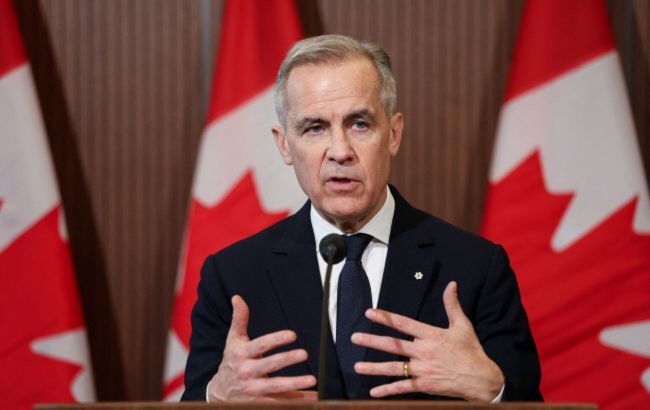First polling stations close in Canada election - Preliminary results
 Photo: Canada's early parliamentary elections near their end (flickr.com/ciska_van_geer)
Photo: Canada's early parliamentary elections near their end (flickr.com/ciska_van_geer)
The first polling stations have closed in Canada’s early parliamentary elections, with the main contenders being the Liberal and Conservative parties, according to Reuters.
Voting has finished in four provinces of Atlantic Canada, a region on the Atlantic coast, while voters are still casting their ballots in Ontario, Quebec, four western provinces, and three territories.
Preliminary results show the Liberal Party leading in 21 out of 32 constituencies, while the Conservative Party has secured 11. Before the election, the Liberals held 23 seats in this region.
Trump's threats sparked a wave of patriotism among Canadians, boosting support for Liberal Prime Minister Mark Carney, a political newcomer who previously headed the central banks of two G7 countries.
Polls conducted shortly before the election showed a narrowing gap between the two main parties, with the Liberals slightly ahead of the Conservatives.
In Canada's electoral system, the party that wins the overall vote typically forms the government, as Conservative support is mainly concentrated in rural areas, which have fewer parliamentary seats.
Battle between Liberals and Conservatives and Trump effect
Last week, Trump stated he might impose a 25% tariff on Canadian-made cars and hinted at the possibility of using "economic force" to include Canada as the 51st state of the United States.
Carney, in his campaign, emphasized the economic experience necessary for effective dialogue with the US, while Conservative leader Pierre Poilievre focused on issues like the cost of living, crime, and the housing crisis.
On election day, Trump once again urged Canadians to support union with the US.
"Good luck to the Great people of Canada," he said. "Elect the man who has the strength and wisdom to cut your taxes in half, increase your military power, for free, to the highest level in the World, have your Car, Steel, Aluminum, Lumber, Energy, and all other businesses, QUADRUPLE in size, WITH ZERO TARIFFS OR TAXES, if Canada becomes the cherished 51st. State of the United States of America. No more artificially drawn line from many years ago."
In response to the statement, Poilievre expressed that President Trump should not interfere in Canada's elections, emphasizing that the future of Canada is determined solely by its citizens at the polls.
In turn, Carney urged Canadians to keep their heads high, using the hockey term "Elbows up, Canada. #Never51," which has become a symbol of national resolve.
He also tried to distance himself from his predecessor, Justin Trudeau, who announced his resignation in January amid record-low support. At that time, the Conservatives were leading the Liberals by about 20 percentage points.
Voter and expert opinion
During the campaign, Poilievre managed to attract more young voters than usual for the Conservatives, focusing on economic issues and safety.
Andy Hill, a 37-year-old mortgage broker from Vancouver, mentioned that he would probably support Carney because stability was needed at the moment. He added that Carney understands the economy well, having worked in the banking systems of both the UK and Canada.
Meanwhile, 66-year-old rancher Bob Lowe from near Calgary said he voted Conservative, citing the country's weak economic growth as his main concern.
Lowe stated that the Conservatives consistently focused on the economy, while the Liberals, according to him, tried to exploit fears about the US for electoral advantage.
Lowe stated that Poilievre focused on a strong economy and a stable Canada, while Carney's campaign was based on ramping up fear.
Professor Kelly Saunders predicts the Liberals will win a majority of seats in parliament, adding that for the Conservatives to win, "an almost impossible set of circumstances" would have to align. According to her, the tension in relations with the US has led to a shift in votes from the New Democratic Party and the Bloc Québécois to the Liberals.
To form a majority in the House of Commons, a party needs at least 172 seats.
Early parliamentary elections in Canada
On March 23, 2025, following a request from Prime Minister Mark Carney, Governor General Mary Simon dissolved parliament and scheduled elections for April 28.
On Monday, Canadians voted for members of the House of Commons (the lower house of parliament). The party leader who secures the most seats will become the prime minister and form a government, either independently or in coalition.
Recently, Carney announced plans to delay negotiations with the US on tariff policies, stating that parliament must first be elected, and then several important reforms would be needed to strengthen the country's position in negotiations with Washington.
For an analysis of who could become the leader in Canada's elections, read our detailed report.

